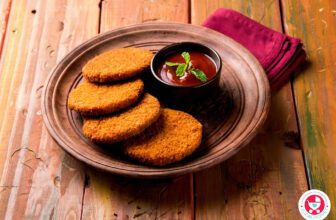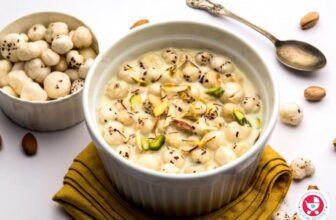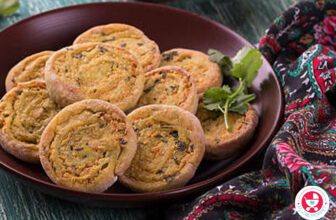
Are you excited and intimidated about introducing your baby to new foods! One of the most common doubts of new moms while introducing solids is, Can I give my baby nut butters?
With the rise of peanut allergies and other nut-related concerns, it’s natural to wonder if nut butters are safe for your little one. In this blog, we’ll explore into the world of nut butters & seed butter alternatives for babies, exploring the benefits, risks, and expert advice on how to introduce these nutty delights into your baby’s diet.
Here are the general health benefits of nut butters to babies:
Nutritional Benefits
- Nut butters are an excellent source of healthy fats, which support brain development and growth in babies.
- Many nut butters, like peanut butter, are good sources of protein, essential for building and repairing muscles, bones, and tissues.
- Nut butters are rich in vitamins E and B3, and minerals like magnesium and potassium, which support overall health and development.
Developmental Benefits
- The healthy fats and antioxidants in nut butters support brain development and function.
- Introducing nut butters to babies may help prevent peanut allergies and other nut allergies.
- Nut butters contain prebiotic fiber, which supports the growth of beneficial gut bacteria.
Other Benefits
- Nut butters are easy to incorporate into baby food, making mealtime convenient and stress-free.
- Introducing nut butters to babies can help to establish healthy eating habits and a love for nutritious foods. Nut butters can be a helpful tool during the weaning process, providing a familiar and comforting taste.
Can I Give My Baby Nut Butters?

Nut butters are safe to be introduced to babies after 6 months in small amounts (1-2 teaspoons) and monitor for any signs of allergy or intolerance. It’s important to opt for natural, unprocessed nut butters without added sugars, oils, or preservatives. Choosing creamy nut butters can reduce the risk of choking.
Here are some popular nut butter & seed butter varieties enjoyed globally and in India, with their potential individual benefits for babies:
1. Peanut butter:

- Peanut butter is a classic choice and widely available in various textures (smooth, crunchy) and flavours.
- Rich in protein, healthy fats, and fiber.
- Good source of vitamins and minerals, including vitamin E, niacin, and magnesium.
- May help protect against allergies if introduced early.
2. Almond butter:
- Popular for its mild, slightly sweet taste and versatility.
- High in vitamin E, calcium, and magnesium.
- Contains monounsaturated fats, which are heart-healthy.
- May help with brain development due to its high vitamin E content.
3. Cashew butter:
- Creamy and subtly sweet, often used in desserts and savoury dishes.
- Rich in copper, iron, zinc, and magnesium.
- Contains antioxidants that may help protect against cell damage.
- Good source of fiber, which aids in digestion.
4. Hazelnut Butter:
- Known for its rich, nutty flavor, particularly popular in Europe.
- Contains monounsaturated fats which support brain development and provide energy for growing babies.
- Contains minerals like magnesium and copper which are important for bone health and various bodily functions.
- Hazelnuts have dietary fiber aiding digestion.
5. Sunflower Seed Butter:
- A great option for those with nut allergies, offering a similar texture and nutritional profile.
- Filled with healthy fats important for brain development and energy in growing kids.
- Good Source of Vitamin E, supporting immune function and skin health.
- Provides Protein which is essential for growth and development in children.
6. Sesame Seed Butter (Tahini):

- Tahini, staple in Middle Eastern cuisine, with a unique, slightly bitter flavour.
- Rich in healthy fats which supports heart health and providing energy.
- Good source of calcium, which is important for bone development in kids.
- Sesame butter contains unsaturated fats supporting heart health in kids.
- Provides plant-based protein, which makes it a valuable component in vegetarian and vegan diets.
7. Walnut Butter:

- A creamy spread with a rich, nutty taste loved in various cuisines.
- Packed with healthy fats like omega-3 fatty acids supporting brain and heart health.
- Good source of antioxidants and magnesium contributing to overall wellbeing and bone health in children.
- Walnut butter offers plant-based protein and fibre aiding digestion.
- Contains unsaturated fats promoting cardiovascular health.
7. Pista Butter:

- Pista butter is a delicious spread which supports eye health due to its rich content of lutein and zeaxanthin, antioxidants that protect vision.
- Its high fibre content can help promote gut health and support healthy digestion in children and adults.
- Pista butter may help manage weight due to its fibre and protein content, promoting satiety and reducing cravings.
- The healthy fats in pista butter support skin health, potentially reducing inflammation and promoting a healthy glow.
- Rich in manganese, pista butter supports bone health and may help reduce the risk of osteoporosis.
How to select nut butters?
- It’s best to opt for unsweetened varieties which are free from added sugars.
- Use Unsalted butters to minimize sodium intake of children.
- Opt for butters that are made solely from the nut or seed, with no added oils or preservatives.
When introducing nut butter to your baby, it’s important to:

- Start with a small amount: Begin with a tiny taste and monitor your baby for any allergic reactions.
- Choose smooth varieties: Smooth nut butters are less likely to pose a choking hazard for young children.
- Dilute if needed: You can thin out nut butter with breast milk, formula, or water to make it easier for your baby to eat.
- Remember, if there are any nut allergies in family history, it’s important to introduce nut butters to your baby under the guidance of your paediatrician.
Allergies & Intolerance

Nut butter allergies in babies can cause a range of symptoms, from mild to severe. Some common symptoms include:
- Skin rash or hives
- Itchy mouth or throat
- Vomiting or diarrhea
- Difficulty breathing
- Swelling of the face, lips, or tongue In severe cases, nut butter allergies can cause anaphylaxis, a life-threatening condition that can lead to shock and even death. If you suspect your baby is having an allergic reaction to nut butter, seek medical attention immediately.

As we conclude our journey into the world of nut butters for babies, remember that every little one is unique, and what works for one may not work for another. By introducing nut butters in a safe and controlled manner, you can provide your baby with a rich source of nutrition and a delicious addition to their mealtime routine.
Always consult with your paediatrician, trust your instincts, and prioritize your baby’s health and well-being. With love, care, and a dash of nutty goodness, you’ll be spreading more than just nut butter – you’ll be spreading joy, nutrition, and a lifelong love for healthy eating 😊

Here are some interesting recipes

Frequently Asked Questions
When can I introduce nut butters to my baby?
Introduce nut butters one after the other around 6 months, after they’ve started solids.
Which nut butters are best for babies?
Start with smooth, single-ingredient nut butters like almond or sunflower seed butter.
How should I introduce nut butters?
Offer a small amount on a spoon or mixed with pureed fruits or vegetables.
Are there any allergy concerns?
Introduce nut butters one at a time to monitor for allergic reactions.
How often should I give my baby nut butter?
Offer nut butters 2-3 times per week as a part of a balanced diet.
Buy Healthy Nutritious Baby, Toddler food made by our own Doctor Mom !
Disclaimer: This content was automatically imported from a third-party source via RSS feed. The original source is: https://www.mylittlemoppet.com/can-i-give-my-baby-nut-butters/. xn--babytilbehr-pgb.com does not claim ownership of this content. All rights remain with the original publisher.












